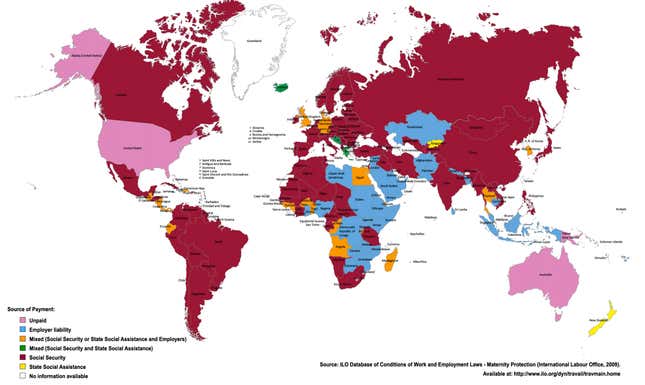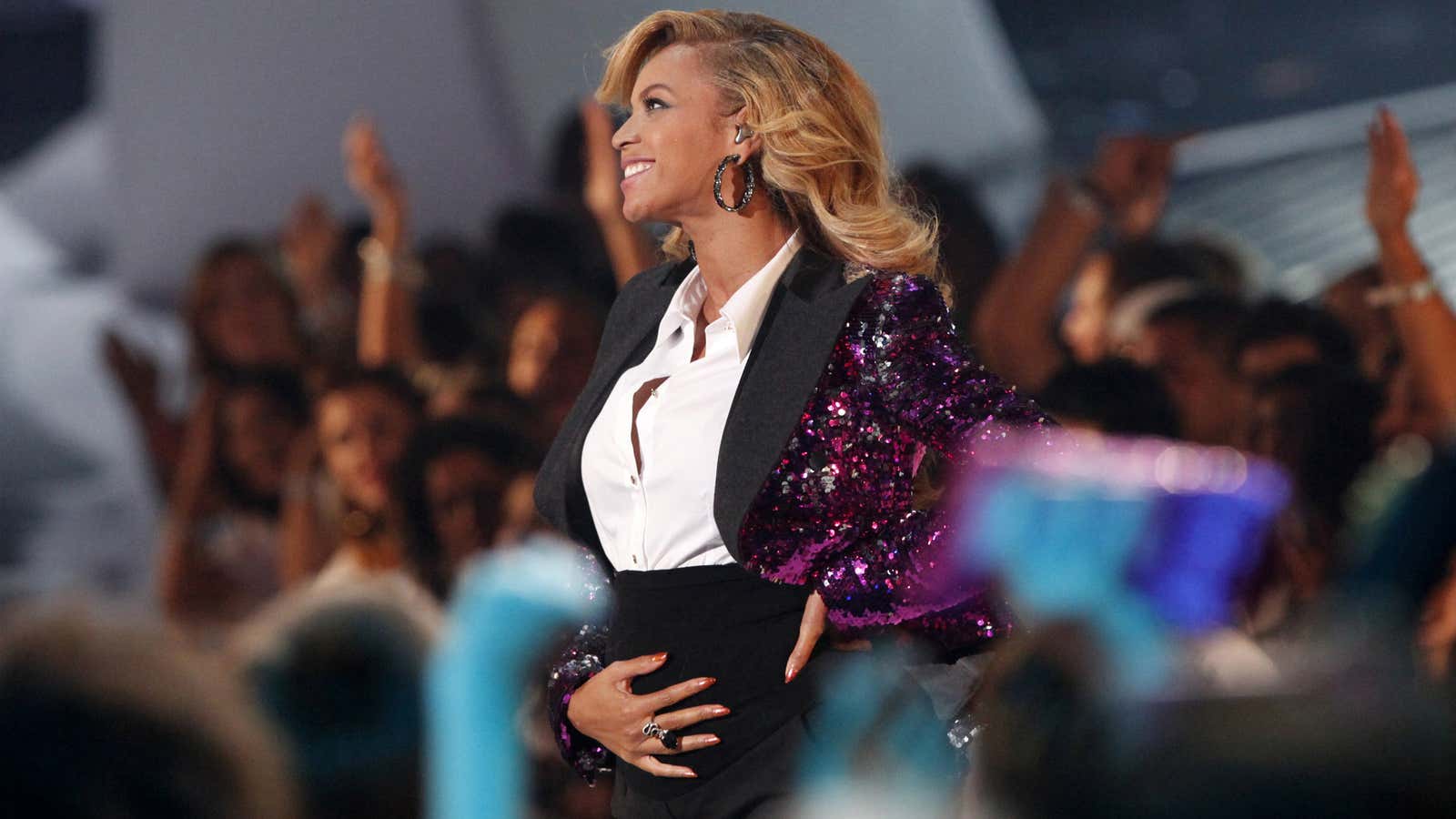The world’s sole superpower requires the same level of paid maternity benefits as fellow economic powerhouses Swaziland, Lesotho and Papua New Guinea. That is to say, zilch.
Here’s a map of how different countries around the world fund legally required paid maternity benefits. It’s compiled by the United Nation’s International Labor Organization, which has some of the best comparative data on the subject. The pink blotches represent countries where new mothers are on their own and no paid leave is required by law. (Note that Australia is pink because the Aussies added paid parental leave in 2011; the data are from 2009.)

Does this matter? Certainly. Women are now breadwinners for 40% of US families with children under the age of 18. And while it’s true that there is some paid maternity leave in the US—New Jersey, California and Rhode Island have family leave programs that new mothers can use and some well-heeled companies provide it—there’s not much. Just 12% of US workers get paid time off to tend to babies or parents who are ill, reports Bloomberg.
Economists have long noted strong links between family-friendly policies and labor force participation among women. Indeed, in the 1990s, the US had the sixth-highest female labor force participation rate among the 22 nations tracked by the OECD. By 2010, the US ranked 17th. One recent study attributed roughly 30% of this “stunning reversal” to the US’s lack of family-friendly policies, compared with expansion of such policies among other OECD countries.
In the midst of an epoch-making tumble tied to the retirement of the baby boom, the US labor force needs all the workers it can get. And that might mean rethinking its outlier status on benefits for new mothers.
